The navy suit is unquestionably one of the most iconic suits in classic menswear. For decades, it’s been a fixture for political rallies, boardrooms, weddings, date nights, and everyday wear. If you’re already immersed in classic style, there’s a good chance you own a navy suit–but are you truly maximizing its potential? Today, we’ll illustrate just how versatile it really is!
Characteristics To Look For In A Navy Suit
We’ll begin by highlighting the characteristics you want in a navy suit to maximize its adaptability, and then we’ll put that adaptability on display in different outfits. This approach will help you spend your money wisely by investing in one highly versatile garment that can be worn in a multitude of ways. If you want to know more about this concept, you can consult our Cost Per Wear guide.
With our tips today, you could, if you so desired, get away with wearing elements of your navy suit every day of the week and still look like you were wearing a mostly fresh ensemble every time. Even so, we’d probably recommend that you give the suit a little bit more of a rest.
A Closer Look At Preston’s Navy Suit
The suit we’re discussing here today is one I got from Suitsupply. We reviewed and shared our buying experience in our Suitsupply: Is It Worth It? review. So, let’s quickly cover just what makes it so adaptable.
Color
First of all, and most obviously, in terms of color, I went with navy blue as this color can straddle the line between formal and casual effortlessly well.
Cut
I chose a single-breasted jacket as double-breasted cuts tend to look more formal almost always. But, I did go with double vents in the back because they flatter my physique more, and I prefer them overall.
Most gentlemen are typically going to get more use out of a single-breasted suit. So, it was a safer choice for me to pick.
Lapels
I opted for peaked lapels on this suit as opposed to the more conventional and common notched lapels. While notches might be a safer and versatile choice, I decided to go for peaked lapels on this particular suit jacket because I have a number of notched lapel jackets in my wardrobe already, and I wanted the jacket to have a slight spark of unique personality.
Buttons
In terms of the buttons, I’ve gone with a three-roll-two front closure, meaning that while the suit does have three buttons, only the middle one is really meant to be buttoned where the topmost button rolls naturally under the lapel.
This way, the button stance is fairly neutral while, again, having a bit more personality from that somewhat hidden third button, and it will look more casual and more versatile overall than a true three-button jacket, which can look a bit more formal and buttoned-up.


Trousers
Moving to the trousers, I’ll note first that I chose to go with side adjusters, which can be an excellent option for any slight fluctuations in your waistline without having to go to a tailor. After all, we’ve all indulged in that extra bite or two at lunch.
The trousers also have buttons inside the waistband to accommodate suspenders if I choose to wear them. But, at the moment, they fit me well enough that I don’t actually have to wear the suspenders for the trousers to hang correctly on my waistline.
These trousers are flat-fronted, but if you want to incorporate pleats into your trouser looks, you can learn more about them and why Raphael loves them so much in our guide to whether or not you should wear pleated pants.

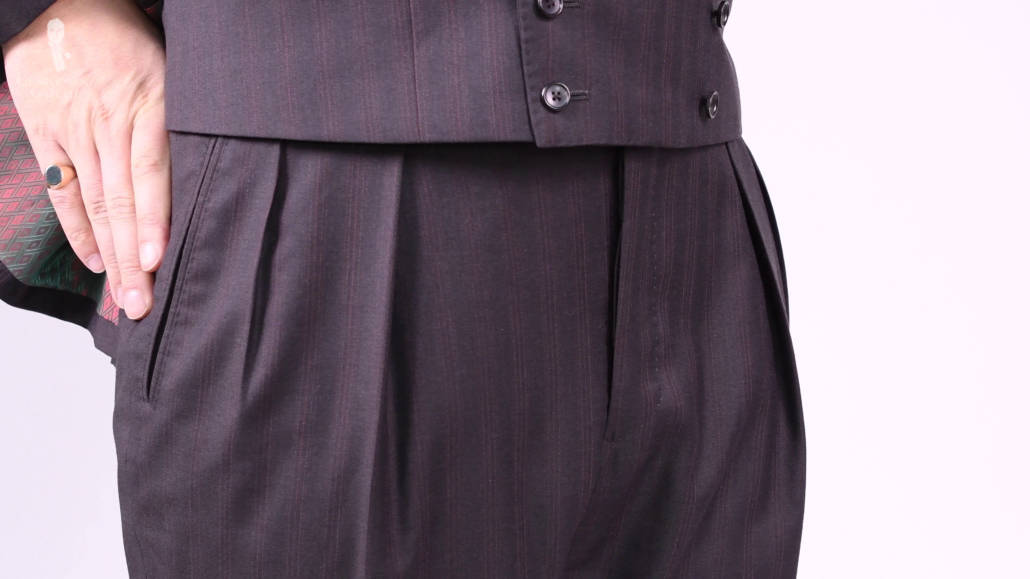
Also, the trouser legs are uncuffed for two reasons. The first is that cuffs are more informal, so I wanted something that would harmonize well with the peak lapels of the jacket. Secondly, if I had gotten cuffs on these trousers, the leg openings would have been narrow enough that they probably would have bunched awkwardly around my shoes, which is something I definitely didn’t want.
Smaller Details
Other small details include working buttons or surgeon’s cuffs on the jacket sleeves as well as a ticket pocket and a lack of trouser break for the reasons of the narrow leg opening that I just mentioned.


And, of course, you’ll notice that I’ve opted for a two-piece suit rather than a three-piece with a matching waistcoat. While most of the advice we’ll provide here could be extrapolated to include a three-piece suit, two-pieces are more common for most men these days, and thus, we thought this advice would be universal when applied to a two-piece suit.

7 Ways To Wear 1 Suit – Look #1: Office Appropriate
Our first example look today has been designed to function as everyday wear at a white-collar office. It’s a traditional and conservative look that still has enough personality to get you noticed for all of the right reasons.

Starting from the ground up, my shoes are cap-toed Oxfords in a dark brown color, which, again, are fairly conservative. As they are often mistakes for other dress shoes, we wrote about the difference between Oxford, derbies, and bluchers.
My shadow-stripe dress socks in navy blue and royal blue are subdued, but they provide a subtle hint of color. Fort Belvedere offers a wide variety of shadow-striped socks for introducing some personality on your ankles, and we’ve even got an entire comprehensive ebook on how to pair pants, socks, and shoes together.
We won’t mention belts or suspenders for any of the outfits today, but, with our modular belt system from Fort Belvedere, you can exchange the belt and buckle into various combinations. You should be able to match the leathers and metals of any outfit effortlessly. Add a couple of pairs of suspenders to your wardrobe, and you’ll be good to go.

As one might expect in a white-collar business setting, I’ve chosen a shirt that is both white and has a collar. The shirt has a spread collar to harmonize well with my face shape, and I’ve worn a slightly wider tie knot to accommodate it.

As much as I love to wear cufflinks, I decided to go with simple barrel cuffs with this shirt. In some white-collar office settings, more sedate cufflink options could be perfectly acceptable, but if you wear something overly flashy, it could be considered an unprofessional distraction.
So, think about your own office culture to determine what might be most appropriate. But, if you want to go with the safest option, stick with barrel cuffs.
My pocket square is in white linen with a contrasting green edge, and it’s in a point fold. White linen is, of course, ideal for more formal pocket squares, but the green edge gives it a touch of playfulness. And the understated theme continues with my tie, which is in bottle green madder silk and accented by a Macclesfield pattern in orange and blue.
I left my lapel’s buttonhole empty, and as much as we here at the Gentleman’s Gazette are big fans of boutonnieres, they might not be totally appropriate for buttoned-up, white-collar office settings.
Look #2: Evening Out
We’ll stay on the more formal side of things with our next look as well, which is great for a cocktail hour, business dinner, or romantic date, or perhaps all three in one evening if you’re anything like Don Draper.
This look builds upon the sedate charm of daytime business wear, but its refined details give it a formal flair that is more suitable for the evening. Still, it isn’t quite as high up on the sartorial ladder as the Black Tie or, certainly, the White Tie dress code.

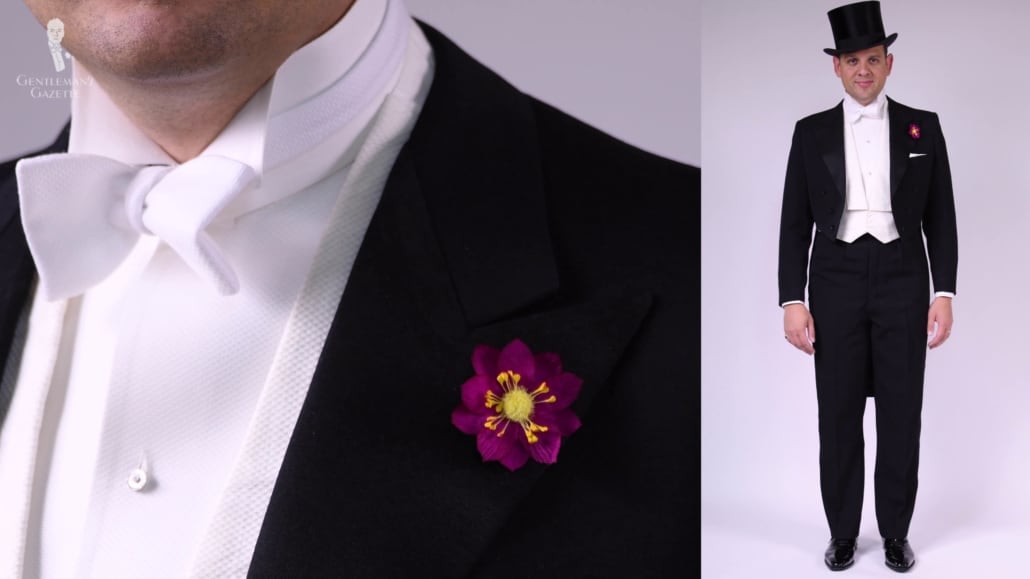
Instead, I’ve opted to pair the navy with lustrous yet subdued shades, and we’ll start with the shoes here, which are a perfect example. They’re oxblood-colored whole cuts from Ace Marks with their hand-painted patina that strikes just the right balance for an evening out.
To bridge the color gap between the suit trousers and the shoes, I’m again wearing some shadow-striped socks from Fort Belvedere, this time in midnight blue and burgundy.

The shirt is white again, but it’s got French cuffs, and into them, I’ve inserted our platinum-plated sterling silver monkeys fist knot cufflinks.
For another pop of burgundy, I’m wearing a silk jacquard tie that features a subtle pattern of small white polka dots and a silk-wool pocket square with a slightly bolder pattern in wine red and also featuring tones of orange, yellow, green, and blue.
And functioning as the true statement piece of the outfit is my boutonniere, which is a red camellia.
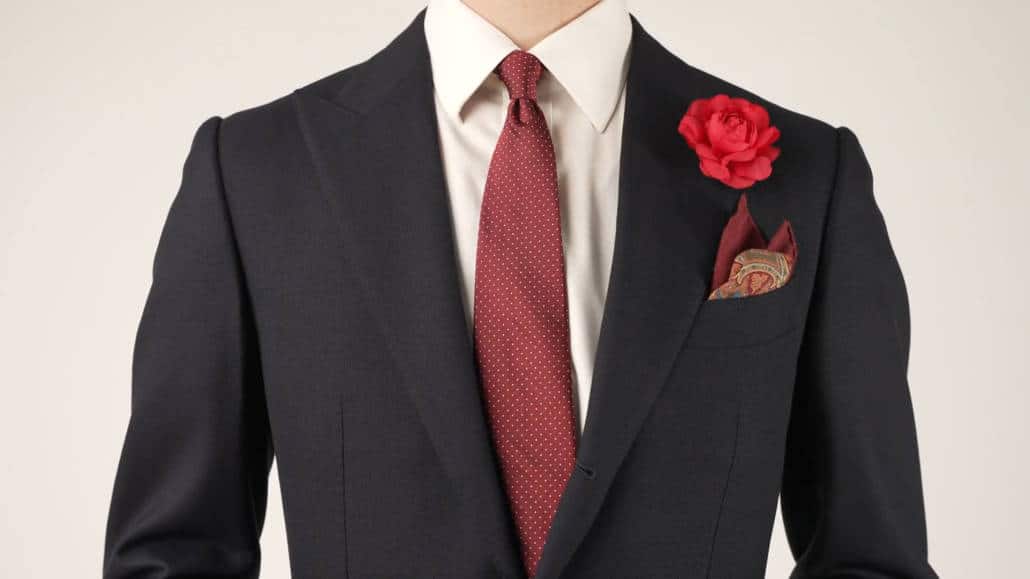
Look #3: Festive Formality
Let’s now transition from supper clubs and opera boxes to a look that is formal but also festive. Here, we’ve traded some of the deep and lustrous tones for more springy pastels. This look would be ideal for ritzy, semi-formal events like weddings, garden parties, or croquet tournaments.
I’ve opted for black, single monk straps for my shoes because the cut of the shoe is more casual, but the color black is, of course, more formal, so these two factors together create a nice balance. Of course, the navy suit goes well with many different shoe colors and styles, from the casual moccasin all the way up to the formal black Oxford.
We wouldn’t necessarily recommend wearing a navy suit with sneakers but if you’re interested in learning how to incorporate sneakers into classic menswear, you can benefit from checking out our Should You Wear Sneakers guide.
Presaging the dominant color choice in the ensemble, I’ve chosen to wear pink and gray shadow-striped socks, and they harmonize nicely with my pastel pink shirt, which is the centerpiece of the outfit.
The pastel tone brightens up the navy suit, but I’m also reinforcing the blue color by wearing our platinum-plated sterling silver eagle claw cufflinks featuring blue lapis lazuli as the stone. And to harmonize with the socks and the shirt, I’m wearing a Fort Belvedere knit tie in magenta pink and gray cri de la soie silk.

To further accent the pink tones without looking too matchy-matchy, I’ve also gone for a linen pocket square that is so pale pink as to basically be white with a more noticeably pink x-stitch on its edge. I’ve also opted for a powdery pink rose from Fort Belvedere because, after all, if you can’t wear flowers at a wedding, where can you wear them?
Look #4: Dapper Dailywear
We don’t want to give the impression that the navy suit is only for formal occasions or special events, so our number four look today will be one that you can put on anytime you simply want to dress to enjoy your clothes
I’m again wearing my brown cap-toed Oxfords, and I’ve paired them with two-tone socks from Fort Belvedere in dark blue and light blue. The pastel blue shirt I’m wearing harmonizes well with both the suit and the socks and ties in nicely to some of the other accessories in the outfit.


And, while you can get away with pairing navy or darker blue accessories with a navy suit, also trying to wear a navy blue shirt will result in a monochromatic look that isn’t exactly classic.
I’m definitely not going with a monochromatic effect, and, in fact, I wanted to try one of the more unique and challenging colors to pair with navy, which is green. After all, as you should well know, it’s not that easy being green. But, when done correctly, it certainly can look wonderful.
I’m injecting the green in my cufflinks, which, again, are eagle claw designs, and they feature malachite as the stone. For a softer transition from blue to green, I went with a navy vintage bow tie from Brooks Brothers but featured a green geometric pattern.
Because the bow tie is more sedate, I felt comfortable going with an especially bold pocket square, our art deco Egyptian scarab design in olive green, and it features accents in burnt orange, sunflower yellow, and mohair blue.

And to bring the entire ensemble together with an organic touch, I’ve opted for a small green carnation boutonniere that we’ve dubbed the “Oscar Wilde Carnation.”
Our first four looks today have utilized the navy suit as a proper whole. Still, for the following three looks, we’re going to break it apart for even more versatility, using the Italian technique of breaking suits apart known as spezzato.
Look #5: Iconic & Adaptable
I’ve chosen to utilize just the jacket for the next outfit, and I’ve incorporated it into one of the most classic pairings in menswear, the navy blazer, and gray trousers. And, of course, while I’m using my suit jacket as a stand-in for a blazer here, keep in mind that, most correctly, there is a difference between suit jackets, blazers, and sport coats.
When I first debuted a look similar to this in our Blazers Under $500 post, I was wearing spectator shoes. However, since I’m not wearing a genuine blazer here, I’ve opted for my dark chocolate brown suede loafers from Meermin, which helped dress down the outfit.
My shadow-striped socks are in light blue and gray to pick up on the blue color tones and provide a nice transition into my trousers.

The trousers themselves are in medium gray, and they feature an extremely fine pattern in their weave. The gray of the trousers helps the navy of the jacket to really pop, while that small pattern provides a bit more visual interest.

And, as most of the outfit is relatively conservative, I wanted to spice things up with something a bit bolder for my shirt, so I’ve gone for a blue checked pattern on a white ground reminiscent of gingham. I’ve again gone with our lapis lazuli eagle claw cufflinks to further accent the blue color feel.
And, as with the loafers, I decided to go a bit more casual with my tie, which is a two-toned knit tie in blue and brown.


For maximum simplicity and versatility, I’ve gone with an open weave white pocket square that features a light blue x-stitch—the open weave pairs well with the casualness of the knit tie and the pattern in the trousers.
Of course, I’ve again decided to entirely forego a boutonniere as I designed this look to be a bit more casual and more modern overall.

Look #6: Summer Style
For this next look, which is designed for warm weather, I’m drawing inspiration from Raphael’s outfit while on a trip to Italy in 2014. But rest assured that this look will still work even if you aren’t touring a Lamborghini showroom or visiting a cheese vault in Parma.
We’ll start again with the shoes, which are tan wingtips from Allen Edmonds that feature a woven leather design. I’ve paired them with some Fort Belvedere shadow-striped socks in caramel and dark burgundy as the red provides an elegant pop of color in an unexpected place, and the color tones also harmonize nicely with my tie and boutonniere.

Because I, unfortunately, don’t yet own a pair of white and blue-striped seersucker trousers, I’ve instead gone with a pair of white pants from Brooks Brothers that are just as cool and breathable. They’re perfect for warm or, indeed, hot weather, and they also help dress down the navy jacket. I’ve gone for a shirt featuring light blue and white stripes.
I’ve chosen to accessorize this look with Fort Belvedere monkey’s fist knot cufflinks in rose gold to bring out the outfit’s yellow and red tones.

Meanwhile, my bow tie is in buff and red with a repeating micro pattern. The red accentuates the red tones in my socks, while the buff, which reads as yellow, also harmonizes well with my socks and provides a nice contrast to the navy blue of the jacket.

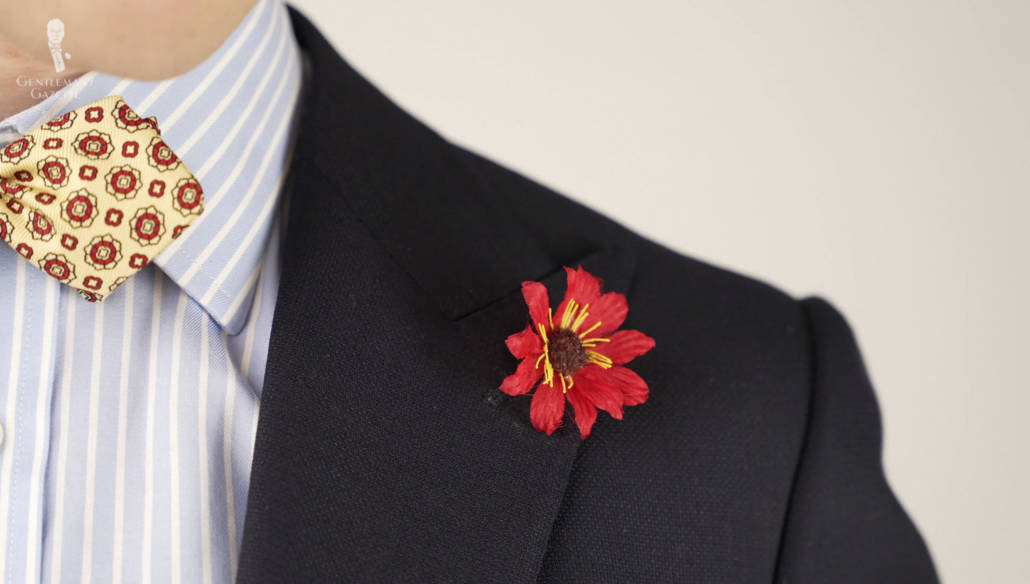
My pocket square in white linen is more subdued overall, but it does contain small blue polka dots for just a hint of playfulness. And, of course, the red and yellow color palette is perfectly encapsulated in my boutonniere, which is an exotic design meant to echo the flowers of the Caribbean. And to cap off the look today, I’m also wearing a Panama hat featuring a subtle brown band.
Look #7: Elegant For Errands
For our seventh and final look today, instead of just using the jacket from the suit, we’re just going to use the trousers. For this look, I definitely had the colder months of the year in mind, where you want to stay warm but still have an outfit good for getting whatever you need to do. And, of course, if you’d like some more layering tips, Kyle has you covered there as well.

Keeping things neutral, I’ve again opted for my chocolate brown suede loafers from Meermin, and I’ve here paired them with shadow-striped socks in navy blue and yellow.
My shirt is off-white to harmonize with both the brown and yellow tones elsewhere in the outfit, and while it does have French cuffs, I’ve just inserted simple black links into them as they aren’t meant to be seen under the sleeves of the brown cardigan sweater.
For a pop of color to liven things up just a bit, I’ve gone with a knit tie from Fort Belvedere in pale yellow, which harmonizes well with the accent color in the socks.
Speaking of the weather, when it comes to keeping out the cold, using overcoats over your navy suits, black or navy would be acceptable choices, but they aren’t going to be that visually interesting. Instead, you might want to consider something like a camel hair polo coat, which was one of the items we declared to be expensive but worth it.


Pair it with a black watch tartan scarf, and you’ll be keeping out the cold in style.
BONUS LOOK: Masterfully Modern by Kyle Thibodeaux
This more contemporary take on the navy suit by our resident auteur of the au courant, Kyle, is a look intended to emphasize a clean, minimalistic silhouette that is uniquely modern but not distracting. Consider wearing this in a business casual office setting or for social events when you want to look cool, collected but also comfortable.
Starting off with shoes, a pair of dress boots would offer this outfit a sleek and neat foundation. Kyle is wearing brown chukka boots, which are slightly on the more casual side of things. You can always increase the formality of this outfit by going all the way up to a pair of black dress boots if desired. Alternatively, you could always wear a pair of minimalist, clean sneakers as well.


For trousers, try wearing a pair of dark wash denim jeans with subdued stitching and no loud details. Try staying away from things like fringes, contrast pocket details, and distress components. Your trousers should have enough formality to pair nicely with your navy suit jacket. More on pairing jeans with sport coats and blazers can be found in our guide.


For the shirt, Kyle has opted to wear a clean white dress shirt with no tie. The pop of color will help emphasize the subtle difference in color between the jacket and the jeans, and it does this without clashing with either item.
Of course, we can’t forget a good pocket square. Kyle has added a mid-blue silk-wool pocket square with green detailing to keep the outfit from looking plain. The rich blue brings out the blue in the jeans and the jacket, and the green creates a unique visual interest that isn’t overbearing.
When you heard “jeans and navy suit jacket,” you may have thought Kyle would wear a light-washed pair of jeans to up the contrast against the jacket. The light-washed look has limited utility because the lighter color of the jeans makes them look more casual, making the jacket look more formal, creating a discordant, jarring effect.
So, to keep things a bit more formal, Kyle stuck with a darker palette, and this palette has distinct highlights of color. This illustrates common tenets for jeans in classic menswear: subtle details, nuanced color balancing, and the perfect fit are key.
Conclusion
The navy suit can effortlessly run the formality gamut from grocery store runs all the way to semi-formal weddings, but it’s important that you’ll pair it with the correct shirt, shoes, and accessories in each circumstance. So, remember to exercise some care when planning your outfits and not just throw anything together and hope that it looks good.

Even so, the navy suit is more than versatile enough to allow a gentleman to express his personality in various ways. Experiment with different colors, accessories, and details. And for more on how to do all of this, you can consult our guide on How To Use The Color Wheel To Assemble Superior Outfits.
Finally, and, perhaps, most importantly, the navy suit is just like any other suit in this respect. Fit is key.
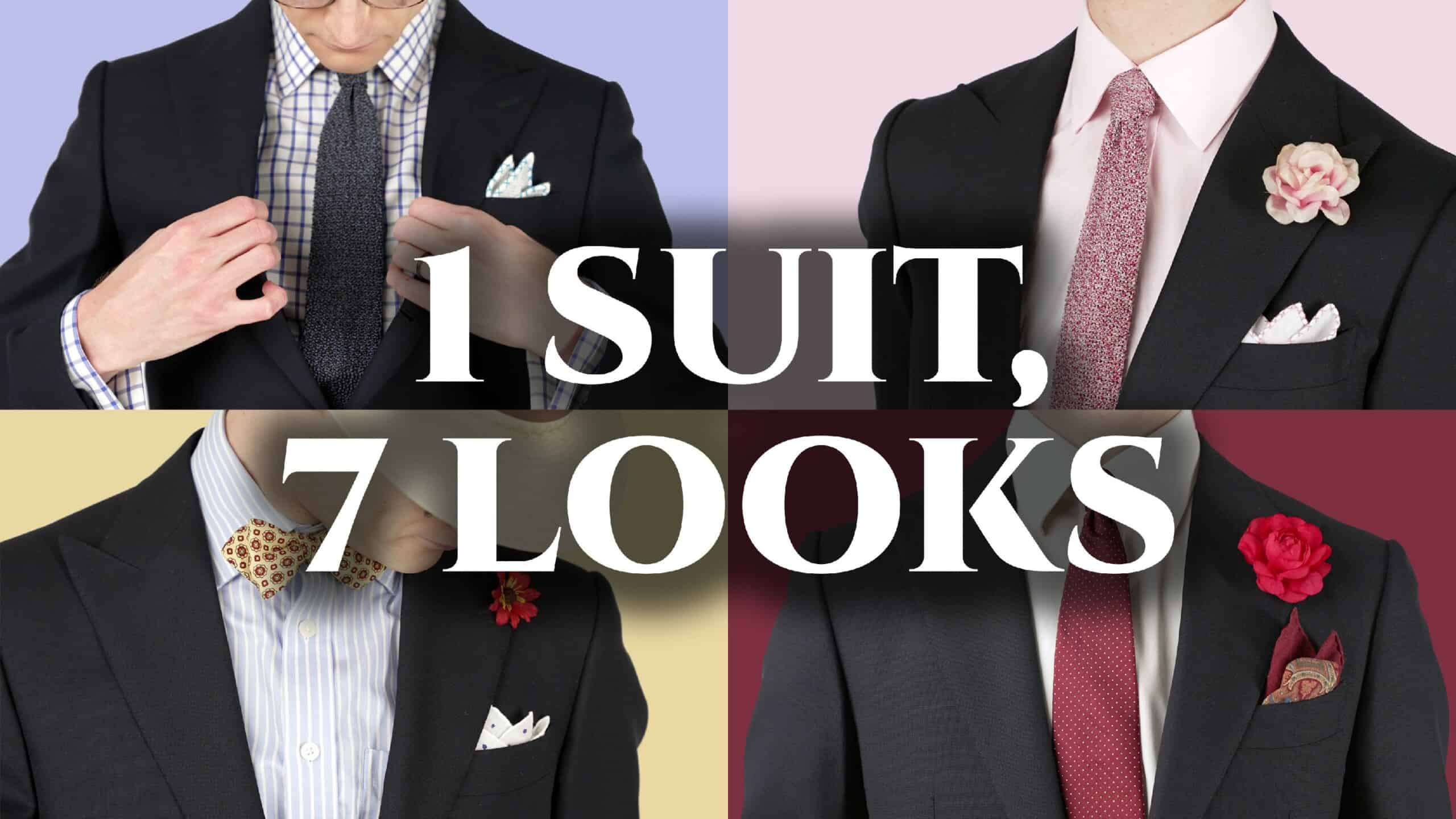



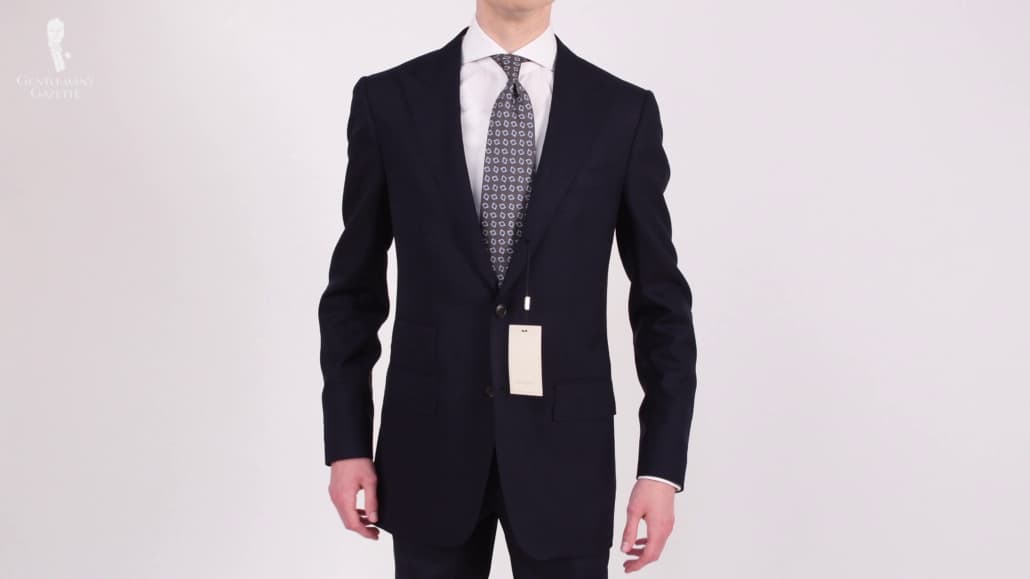





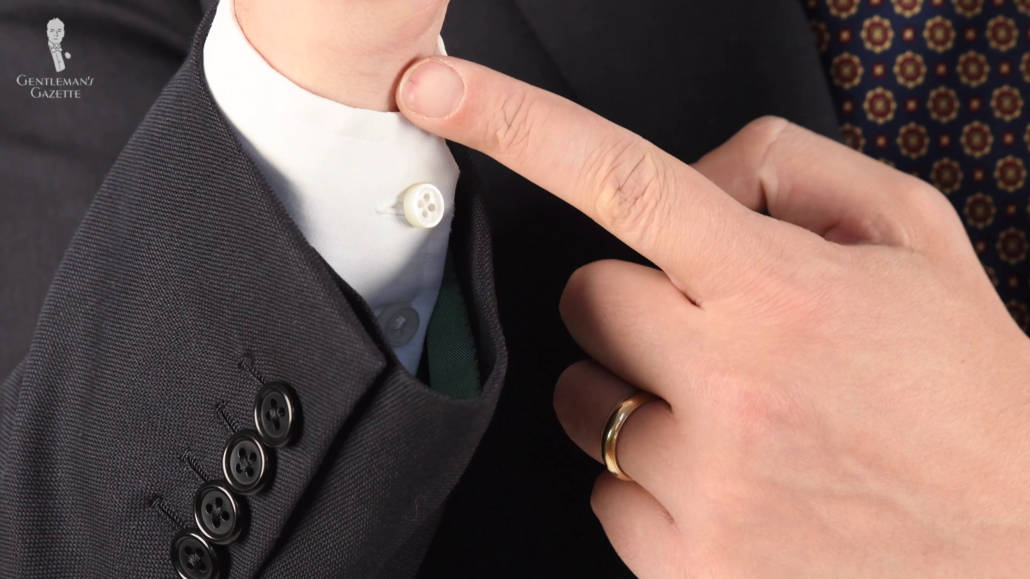


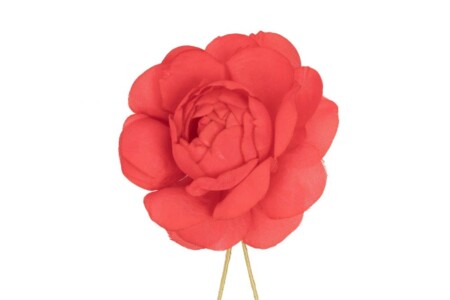
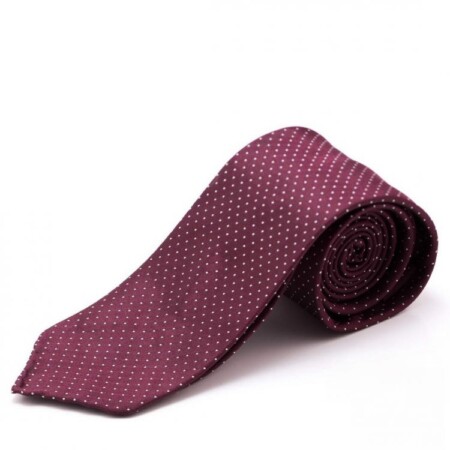
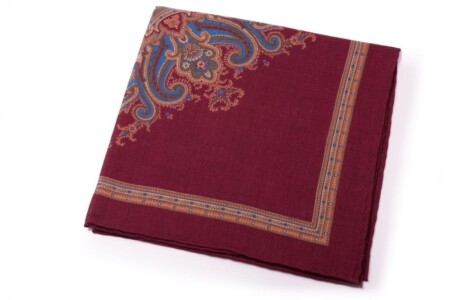
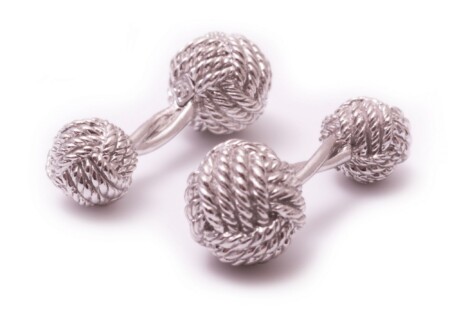
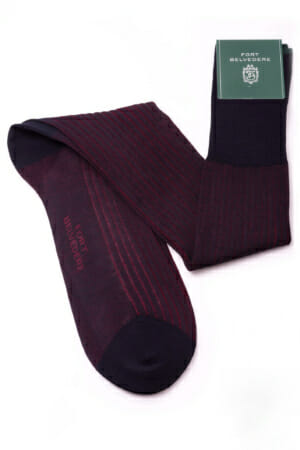
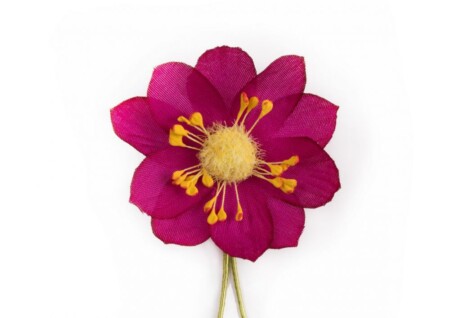


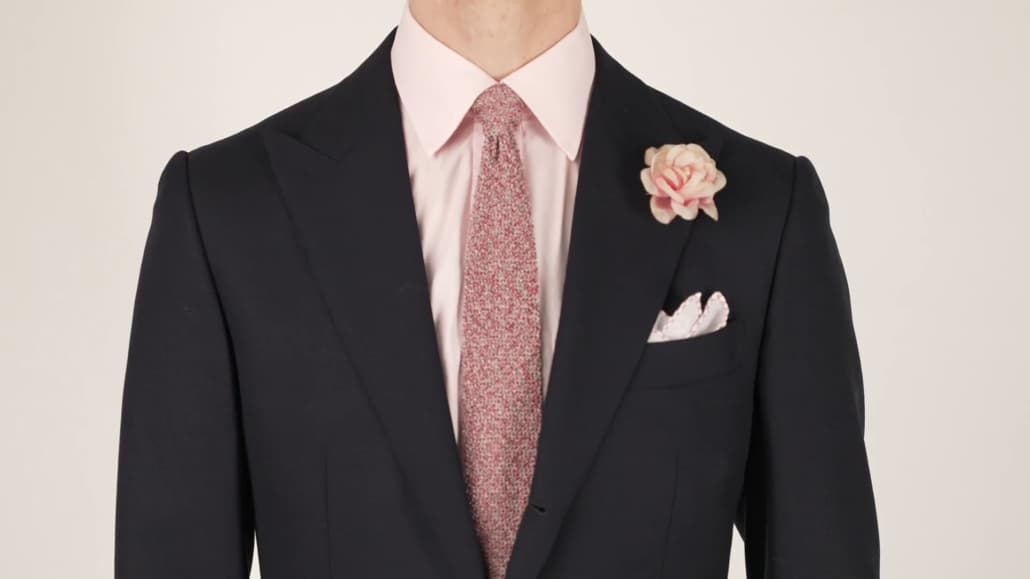
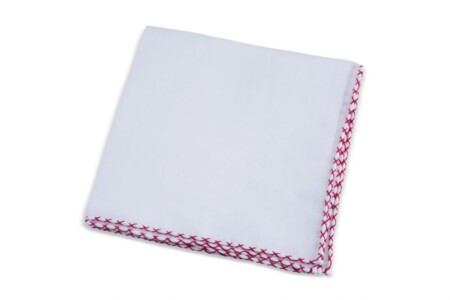
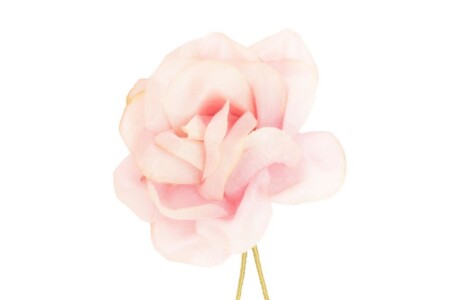
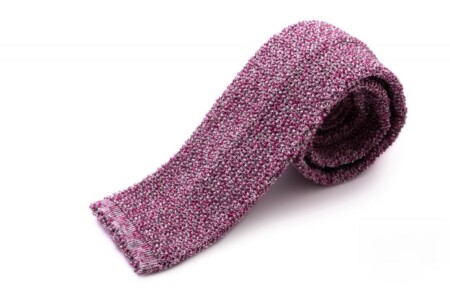
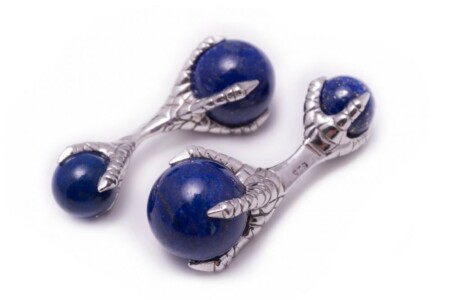
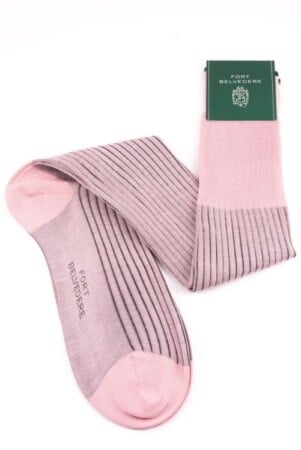

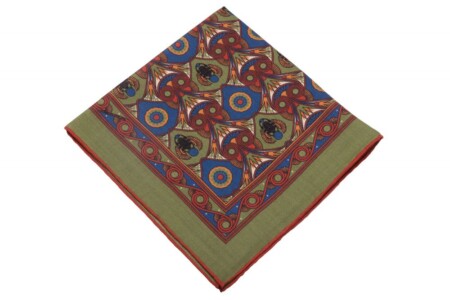
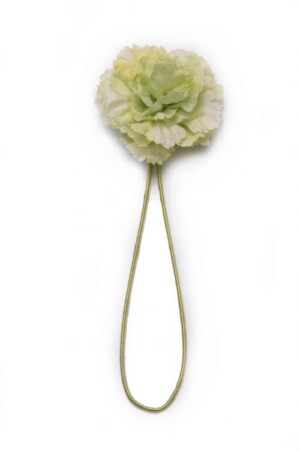
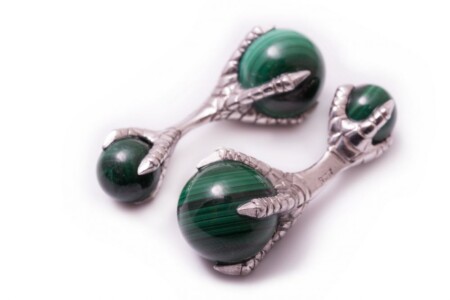
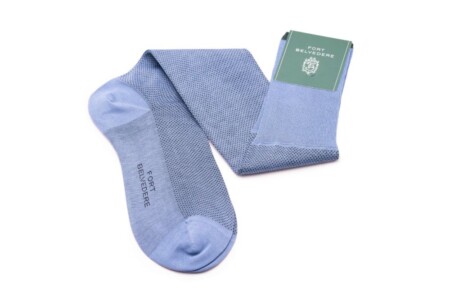

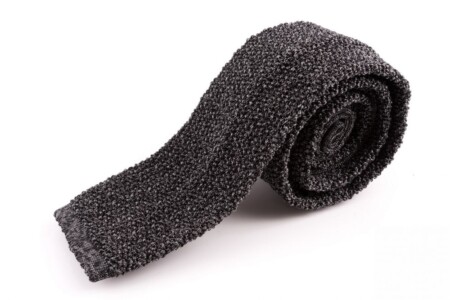
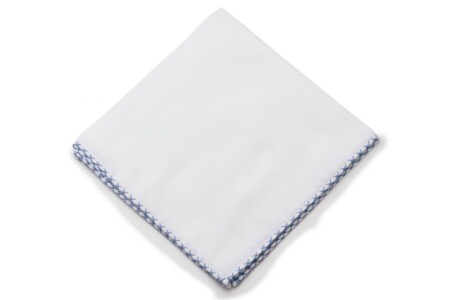
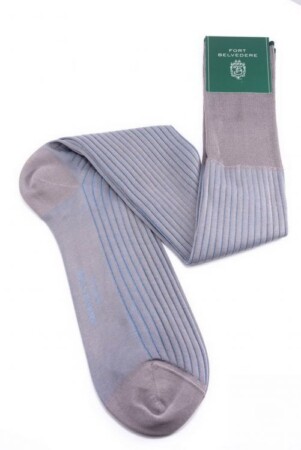
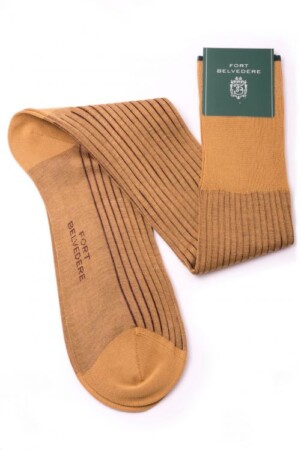
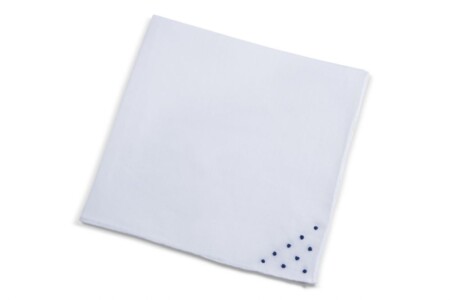
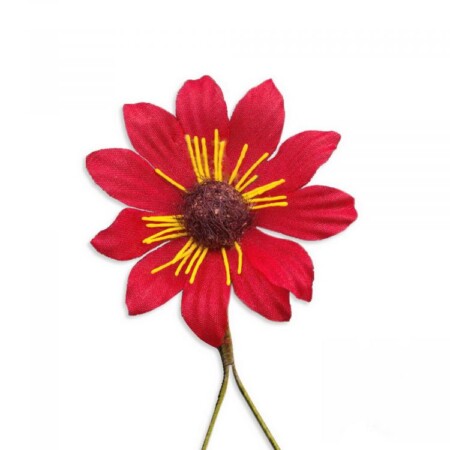
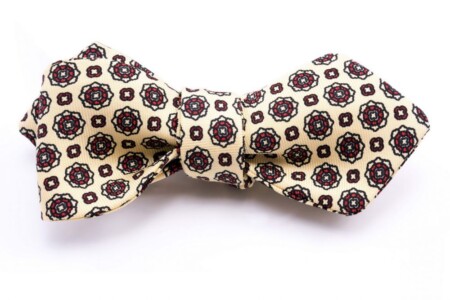
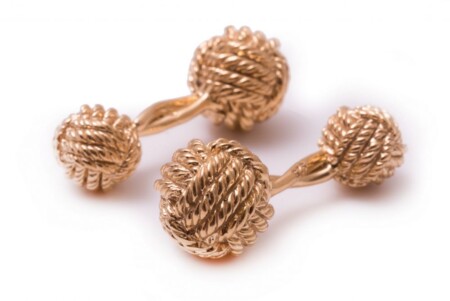

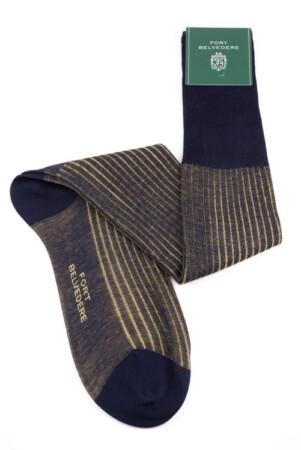
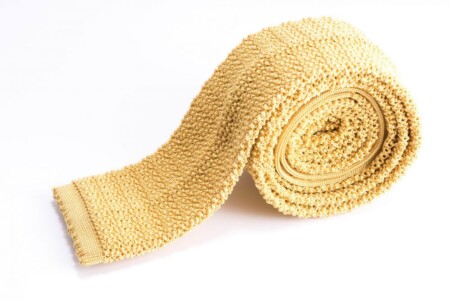
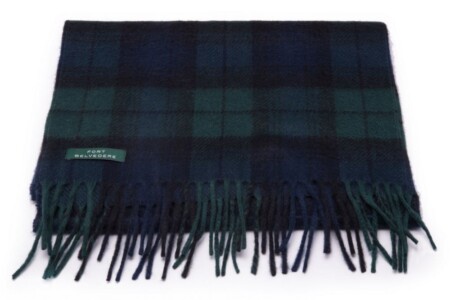
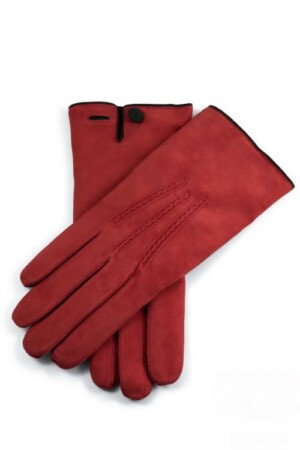

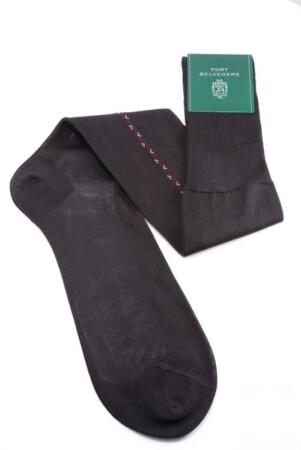
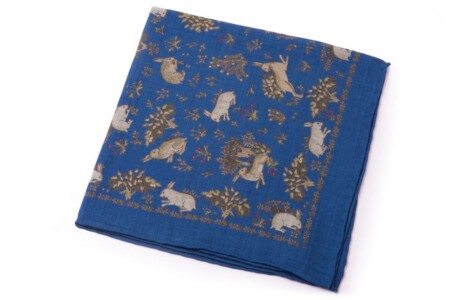

I really enjoyed the video/article Preston!
On a more unrelated note, I would be interested to hear your opinion on if Western wear could in any way be considered classic. Also, another subject I would be interested in would be if there are any individual items of western wear that could be incorporated well into classic menswear. I think those could make for some excellent articles/videos to publish.
I myself am an amateur Western wear enthusiast and also studying US History in college at the moment. While I understand that Western wear isn’t within the wheelhouse of the Gentleman’s Gazette, I would still like to hear your take on it.
Western wear is absolutely a lexicon of classical menswear. Unfortunately it is also classical workwear and frequently frowned upon in less agricultural parts of the world. It can be dressed up for more formal situations but you will probably find that people view dressed up western wear in a similar way to putting lipstick on a pig, unless you are in the southwest parts of the U.S., and even then it can be a crapshoot.
My favorite way to wear a navy suit? As a navy suit. That’s it. Period.
I would never, ever break up “the set” and wear the jacket or the pants separately. Runs the risk that both pieces look orphaned on their own, and will wear out on different timing, with the more-frequently worn article giving out first.
I totally get trying to be efficient and saving money, but you’re better off saving up for a sports jacket that’s just a sports jackets (and has the visual cues of being a sports jacket that your suit coat doesn’t), rather than trying to get the suit to do double/triple duty. I guess you can infer that this is one of my least favorite posts you guys have ever done.
And while I’m piling on, I think your suit trousers are way too short. Look, I detest “puddle pants” as much as the next guy, but yours look like they barely brush the top of your shoes, if at all. And that’s before any shrinkage from the dry cleaners.
Yes, I agree more or less on all counts there. I know spezzato is meant to be a thing as evidenced by a whole GG article about it. It’s very hit and miss, though, from what I’ve seen; some of the examples Raphael has previously showcased look like he’s grabbed the first pants he can find having accidentally spilled something on the suit trousers.
In examples #5 and #6 for this article, Preston does spezzato reasonably well. In saying that, though, I tend to agree with LAStyleGuy that spezzato runs the risk of items wearing out at a faster pace (or fading) if worn as separates. In particular, the trousers of a suit – unlike the jackets, which can be removed and often are in the office and left to hang in cupboards or on the back of one’s chair, the trousers are more prone to wearing out (especially in the seat) due to constant movement and/or friction from sitting. For that reason, I would definitely advise against #7 and instead invest in either navy chinos or odd trousers whether wool or cords.
Naturally, most tailors will offer a secondary pair of trousers with a suit for this very reason. Provided the wear isn’t excessive and care goes into the garment, it’s very possible for both the trousers and jacket portion of the suit to have a good lifespan, even if they are occasionally worn as separates.
Naturally, that’s why I always buy a second pair of trousers to go with the jacket. In the event the seat wears on one or the zip breaks on one pair before I need to wear the suit (has happened once before) I always like to be prepared and have a backup option. Even so, I prefer not to mix and match but wear the suit as a suit. If I want a combo like Preston wears in #5 or #6, I’ll wear a navy blazer.
Indeed. I get a second pair whenever it’s an option. As far as breaking up a suit, I only do it if it’s a very casual suit, i.e. the jacket and pants might actually look okay on their own, and I’m still very careful about balancing wear if I ever intend on wearing it as a suit in the future. On a plain navy worsted suit like this, I wouldn’t use the “technique”. Ever. It just screams “I have another half somewhere!”
Hal9k, I’m with you about your views in spezzato. Need look no further than these examples: https://www.gentlemansgazette.com/spezzato-how-divide-suit/
I’ll concede that Raphael’s brown suit jacket and khaki chinos isn’t too bad. Otherwise they scream ‘other half elsewhere.’ The one of Raphael in the yellow pants with brown jacket and vest particularly conjures up images of someone having spilled something on their pants and changed into the first pair they could find.
Or a navy blazer. Sports jackets are more rugged and less formal. Blazer fabric is smoother and therefore more formal.
Hi LA Style Guy, thank you for reading the article and providing your thoughts. Of course, one of our priorities here is to provide inspiration to those who want different ways of utilising a navy suit. After all, it’s one of the most versatile items of menswear! Even if some of the looks aren’t for you, we hope to have provided a new take on this classic garment :)
Calling the navy suit “versatile” might be a bit of a stretch. Essential, absolutely. Classic, definitely. You wanna know what’s versatile? A thin v-neck sweater. A pair of captoe Oxfords. You can wear either or both with a navy suit, you can wear either or both with jeans. THAT is versatile. Stretching the limits of what can be done with a navy suit by wearing the jacket by itself is pushing it a little, methinks. The navy suit is essential and classic for a reason. There’s no need to try to fit it into roles it’s not cut out for. Just let it be what it is, and look elsewhere for what it isn’t.
Hopefully, we’ve been able to prove in the article that a navy suit is versatile by the very nature of being able to style it in a multitude of different ways. Of course, there are many more ways in which a navy suit can be worn, which is something we may revisit in a follow-up article. Even if wearing just one piece of a navy suit isn’t to your taste, I’m sure there are others who will benefit from these ideas. After all, a garment will only be as versatile as the wearer allows it to be – for example, I don’t consider cap-toe Oxfords to be as versatile as I’d never wear them with jeans, but I can understand how others may find that to be a useful tip :)
I suppose it just boils down to perspective, then. I just see “you can wear a navy suit with all different colors of ties, shirts, and accessories”, which is absolutely true. It’s certainly more versatile than a black suit, tuxedo, or seersucker suit. But, at the end of the day, any way you slice it, you are still wearing a navy suit.
And while the one pair of jeans I own is now worn and faded to the point where I only wear them for yardwork, I will say a light brown pair of Oxfords look quite sharp with a “nice” pair of jeans.
I appreciate the information of this article. It gave me some.new ideas to consider. I don’t own a navy blazer in my cool weather rotation, but I do have 3 navy suits from which I could borrow the jacket occasionally. This approach will satisfy my fiscal sensibilities and keep my wife happy that I am not taking up any more closet space in our all original 1930’s arts and crafts home. You know, the homes with itty bitty closets.
Thanks, Jefferson, I’m glad you were able to find some useful tips within the article!
I guess I am old fashion. All of the pants, save the jeans, were what I would call “high waters,” as I was taught that the cuff should come down to touch, just touch, the top of the shoe. The socks were not visible until one sat down. Is this a “fashion trend” and so to be avoided by those of us relishing the classic look?
This was great. I’d like to see similar format using a classic grey flannel suit.
Glad to hear you enjoyed it, JC! A grey flannel suit sounds great, perhaps one for a future post :)